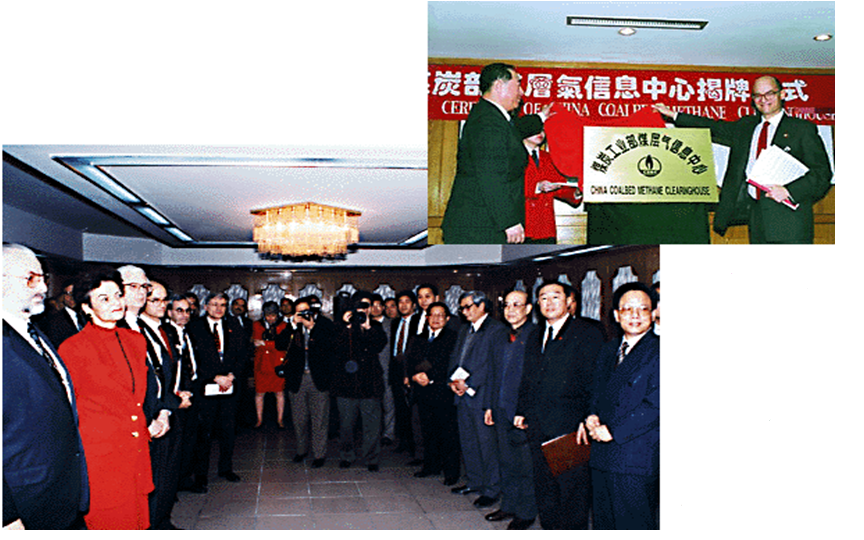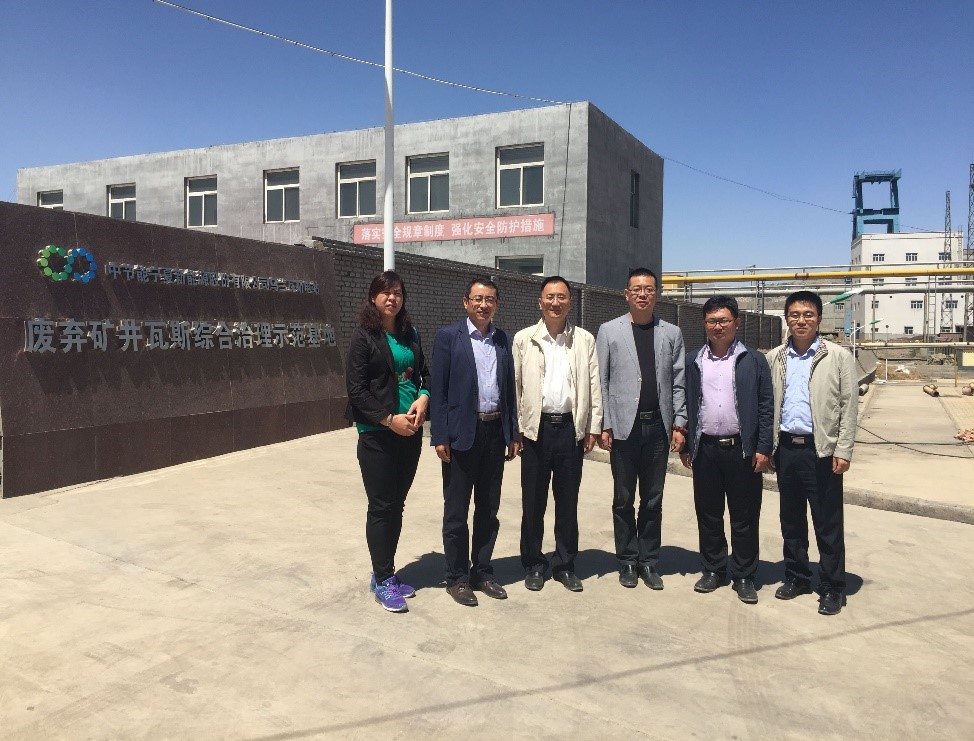
China Coal Information Institute: The Story of Methane Mitigation in China
The China Coal Information Institute (CCII), established in 1959, is a national research organization that has been affiliated with the Ministry of Emergency Management of the People’s Republic of China since 2018. The CCII has helped oversee several methane mitigation actions in China as described below.
Creating the Coalbed Methane Clearinghouse
The China Coalbed Methane Clearinghouse was jointly established in 1994 by the Former Ministry of Coal Industry of the People’s Republic of China and the U.S. Environmental Protection Agency (EPA). CCII leads the activities of the CBMC and helped achieve several relevant accomplishments, such as:
- Developed Coal Mine Methane (CMM) Market Development Packages in eight key coal mining areas
- Hosted international coalbed methane (CBM)/CMM symposia bringing together Chinese and international experts
- Provided technical and logistic assistance to facilitate foreign project development in China
| Opening Ceremony of the China Coalbed Methane Clearinghouse in 1995. |
Joining the Global Methane Initiative (GMI)
China was one of the 14 founding countries of the GMI in 2004. Since GMI’s launch, the Chinese government has actively participated in GMI-related activities through the Department of Climate Change of Ministry of Ecology and Environmental Protection of the People’s Republic of China. CCII helped the Department of Climate Change coordinate methane reduction activities across the domestic coal, agriculture, landfill, oil and gas, and urban wastewater sectors. In 2007, CCII worked with the National Development and Reform Commission and EPA to organize the 2007 Methane to Markets Partnership Expo. Since then, CCII has continued to play an important role in GMI’s coal sector work in China.
| GMI’s coal sector work in China. |
Advancing Abandoned Mine Methane Development in China
Many coal mines in China have closed as stricter safety and energy policies have been implemented. The abandoned mines are an important source of methane emissions, but they also present a significant opportunity for methane recovery and use. Since 2001, CCII has been committed to conducting research on abandoned mine methane (AMM) development and utilization in China.
| CCII’s Delegation Visiting an AMM Project in Germany in 2014. |
Between 2014 and 2016, researchers from CCII visited other GMI countries including the United Kingdom, Germany, the United States, and Canada to exchange knowledge about AMM development and utilization technologies and to participate in on-site inspections. Outcomes of these site visits included:
- Recommending policies to improve China’s AMM extraction and utilization efforts
- Preparing the feasibility study for an AMM development pilot project
- Policy recommendations for AMM development and utilization in China
- Utilization of British expertise to promote the commercialization of AMM recovery in China
In 2017, CCII also conducted strategic research for the report, Coal Mine Safety and Abandoned Mine Resource Re-development and Utilization Sponsored by the China Academy of Engineering.
| CCII’s Delegation Visited the Polish Mining Authority in 2017. |
AMM Development Pilot Projects
In 2017, CCII collaborated with two coal mines and new energy resource companies on AMM development pilot projects in China:
- AMM Development and Utilization Project in the Wulan Coal Mine, Inner Mongolia
- AMM Development and Utilization Project in the Qingshui No.2 Coal Mine, Liaoning Province
| AMM Development and Utilization Project in the Wulan Coal Mine. |
In addition, CCII prepared the report, Policy Research on Exploitation and Utilization of AMM Resources in Closed Mines, which has been used by the NEA. CCII also helped the NEA develop the draft version of the report, Guidance of Improving the Comprehensive Controlling and Utilization of AMM in China. Once implemented, these guidelines will provide a roadmap for developing AMM assets in China while also helping prepare coal mines for closure in a way that facilitates utilization of methane from abandoned mines.




